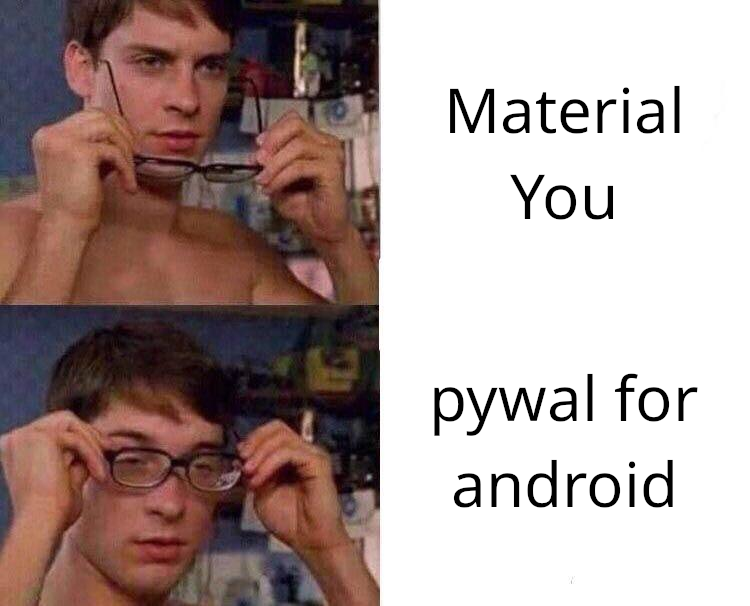this post was submitted on 28 Jul 2023
156 points (95.9% liked)
linuxmemes
23369 readers
1252 users here now
Hint: :q!
Sister communities:
Community rules (click to expand)
1. Follow the site-wide rules
- Instance-wide TOS: https://legal.lemmy.world/tos/
- Lemmy code of conduct: https://join-lemmy.org/docs/code_of_conduct.html
2. Be civil
- Understand the difference between a joke and an insult.
- Do not harrass or attack users for any reason. This includes using blanket terms, like "every user of thing".
- Don't get baited into back-and-forth insults. We are not animals.
- Leave remarks of "peasantry" to the PCMR community. If you dislike an OS/service/application, attack the thing you dislike, not the individuals who use it. Some people may not have a choice.
- Bigotry will not be tolerated.
3. Post Linux-related content
- Including Unix and BSD.
- Non-Linux content is acceptable as long as it makes a reference to Linux. For example, the poorly made mockery of
sudoin Windows. - No porn. Even if you watch it on a Linux machine.
4. No recent reposts
- Everybody uses Arch btw, can't quit Vim, <loves/tolerates/hates> systemd, and wants to interject for a moment. You can stop now.
5. 🇬🇧 Language/язык/Sprache
- This is primarily an English-speaking community. 🇬🇧🇦🇺🇺🇸
- Comments written in other languages are allowed.
- The substance of a post should be comprehensible for people who only speak English.
- Titles and post bodies written in other languages will be allowed, but only as long as the above rule is observed.
6. (NEW!) Regarding public figures
We all have our opinions, and certain public figures can be divisive. Keep in mind that this is a community for memes and light-hearted fun, not for airing grievances or leveling accusations. - Keep discussions polite and free of disparagement.
- We are never in possession of all of the facts. Defamatory comments will not be tolerated.
- Discussions that get too heated will be locked and offending comments removed.
Please report posts and comments that break these rules!
Important: never execute code or follow advice that you don't understand or can't verify, especially here. The word of the day is credibility. This is a meme community -- even the most helpful comments might just be shitposts that can damage your system. Be aware, be smart, don't remove France.
founded 2 years ago
MODERATORS
you are viewing a single comment's thread
view the rest of the comments
view the rest of the comments

Someone explain please
Material you changes the android colour palette based on the colours in your background image.
Looks like pywal does the same for your terminal.
Material You: sets all the colours of your phone according to the colours of your wallpaper
Pywal: sets all the colours of your Linux desktop (terminal colours, GTK theme, config files derived from template files) according to the colours of your wallpaper
What I don't get is how often are people looking at their wallpapers? I see mine for a couple seconds before all the screen real estate gets taken by apps or monitoring etc.
It's to get a cohesive theme across all applications, so, even if you don't see the wallpaper, it overrides the default app themes that would all clash with each other otherwise
I use a tiling window manager, and it maximizes that behavior. I still have wallpapers, because I spend most of my time in terminals, and they're set to something like 90% opacity. I can still see the wallpapers, but it's subtle. Inactive, non-terminal windows get 80% opacity, so I see it more there.